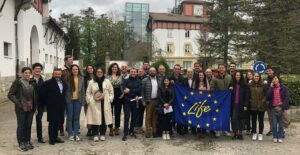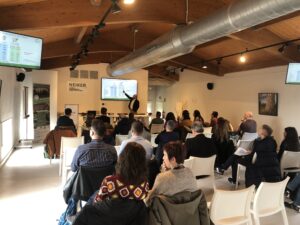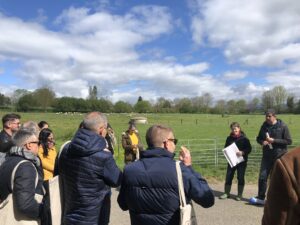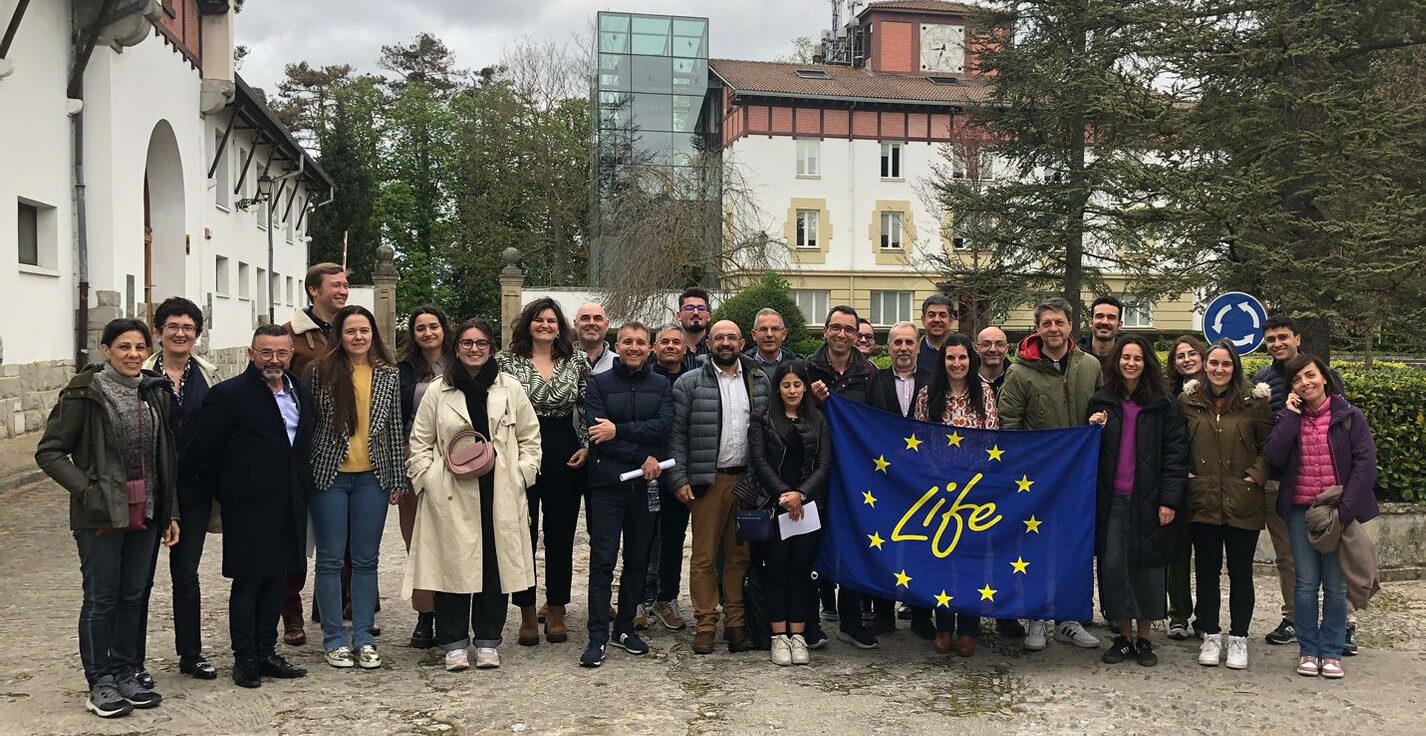
Vitoria-Gasteiz, April 17, 2024. In this 3rd year of the project, the 7th Steering Committee took place in Spain, in the facilities of Neiker, the Basque Institute for Agricultural Research and Development, in Vitoria-Gasteiz (Basque Country). The opportunity for the French, Irish, Romanian, Italian and Spanish partners of the LIFE Green Sheep project to have an overview of the project’s news but also to discover Neiker’s facilities and trials on sheep feeding (valorisation of new co-products, regenerative grazing…). For the occasion and halfway through the project, everyone invited representatives of sector organizations to discuss good deployment practices.
Exchanges for a common methodology: the first action of the project made it possible to compare environmental and sustainability assessment tools and methods between countries and to identify differences. The latter concern the evaluation of sheep intake and therefore the methane enteric emissions and the assessment of carbon storage.

The preliminary results of of the environmental and sustainability performances European observatory of sheep farms
1,219 dairy and meat sheep farms, representative of different pedoclimatic contexts (including 826 in France) have already been assessed and their results make it possible to constitute an observatory of environmental performances linked to practices. In addition, a greenhouse gas emissions reduction target is set at -5% for these so-called demonstrative farms. At the same time, 282 “innovative” farms are monitored more specifically and are implementing carbon plans with an average reduction objective of -12% in greenhouse gas emissions. The main mitigation practices concern the management of the flock (reduction of mortality, improvement of prolificacy, etc.), the optimization of feeding with significant work carried out on the autonomy of farms, the management of effluents and the maintenance or even increase in carbon storage by meadows and hedges. Once these practices have been tested on a technical and economic level, they can be disseminated more widely.
Inspiring visits
For the occasion, the group was able to visit the experimental farm of Neiker, which is involved in several European projects. Participants were particularly interested in the trials carried out on innovative co-products such as coffee grounds which would improve zootechnical performance while reducing methane emissions. Trials on “regenerative” grazing (which is similar to dynamic rotational grazing) also show very good technical and environmental results.


